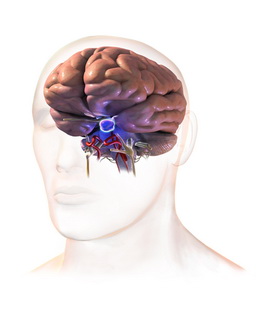
A pituitary tumor is actually an abnormal growth of a pituitary gland in the human brain. The pituitary glands are a pair of small hairs in the back of the head that secrete hormones and control the production of other hormones.
The pituits secrete hormones in response to environmental stimuli, such as stress or lack of sleep. It also produces many different hormones in response to the environment. Some of these tumors are never detected until the person reaches the advanced stages of life. Most of these tumors are harmless and do not produce symptoms in their early stages.
One type of pituitary gland secretes hormones that regulate mood. This is often referred to as the emotional intelligence pituitary glands. When the body is under stress, this hormone is released in large quantities. These hormones have a very strong effect on the human body. In some cases, tumors of the pituitary gland of emotional intelligence can affect a person's judgment and emotional stability.
Another type of pituitary gland secretes hormones that regulate the immune system. The immune system helps fight infections and helps to strengthen the immune system. Tumors affect the production of white blood cells in an area called the leukocyte compartment. This can slow down the immune system and lead to infection. The immune system is very important for a healthy and strong body.
The third type of pituitary gland secretes hormones that help regulate the reproductive system. This is important for maintaining a person's youth and ability to reproduce. If egg production stops or sperm does not pass through the egg, the person may experience infertility and cannot reproduce.
The fourth type of pituitary gland secretes hormones that regulate the production of bones and cartilage. These tissues make up the skeletal structures of your body. Bones and cartilage can be damaged for many reasons, including aging.
When your bones and cartilage fail to repair, you may suffer from osteoporosis, a condition in which bone loss is less desirable. This can lead to bone fractures and sometimes even bone loss.

It is important to remember that a pituitary tumor may not need medical attention. However, the sooner you notice symptoms, the better your chances of finding the disease and getting the treatment you need for your condition.
Symptoms of the pituitary tumors include severe headaches, depression, anxiety, nausea, vomiting, abdominal pain, fever, sweating, irritability, and weakness. If you experience any of these symptoms, you should contact your physician immediately. You may also experience difficulty concentrating, seizures, decreased sexual drive, muscle weakness, memory problems, and changes in personality.
There are several medical treatments that can be used for this type of tumor
Surgery may be used depending on the severity of the tumor. The doctor may use surgery to remove the entire tumor. The doctor may decide on one or more procedures in order to get rid of the problem.
Surgery includes the use of radiation or chemotherapy in the form of drugs that help kill the cancer cells. This is a very effective treatment for tumors that affect the pituitary glands. The surgery may be performed under general anesthesia.
Radiation therapy involves using a beam of radiation to kill the cancerous cells in the area of the tumor. The treatment may be used either alone or in combination with surgery. This therapy may be used for smaller tumors or larger tumors.
In some cases, surgery and radiation therapy will be combined. In this situation, an option of chemotherapy may be used in conjunction with the surgery.